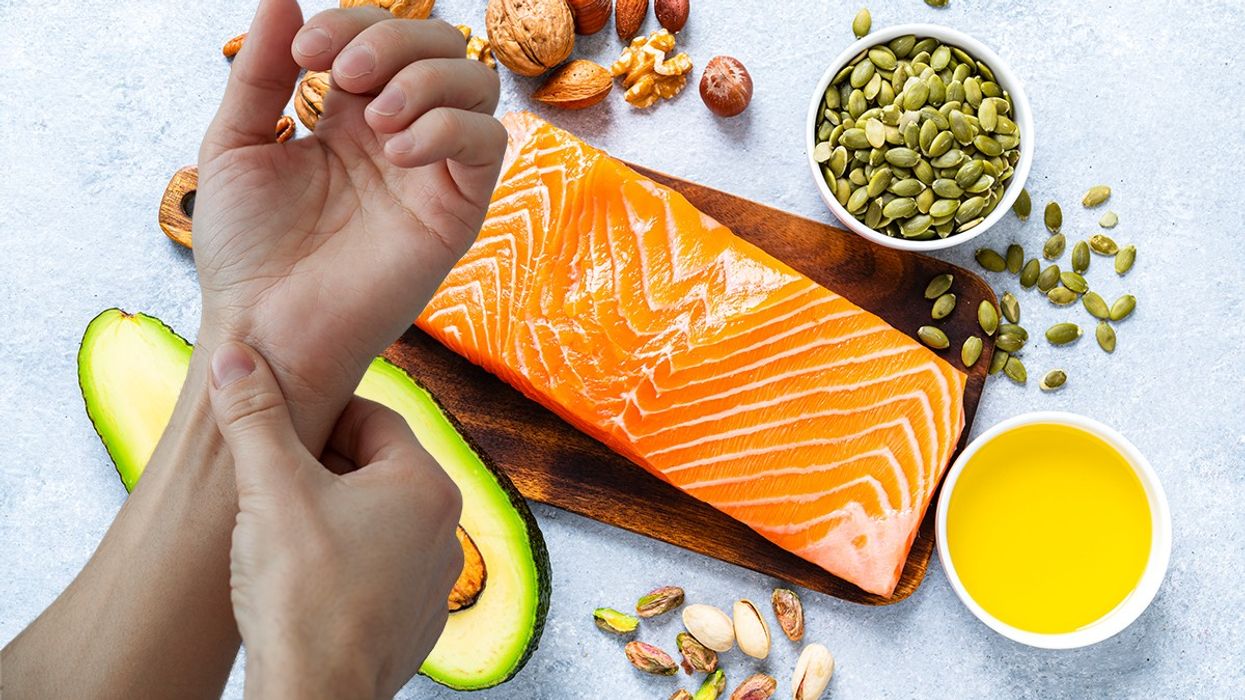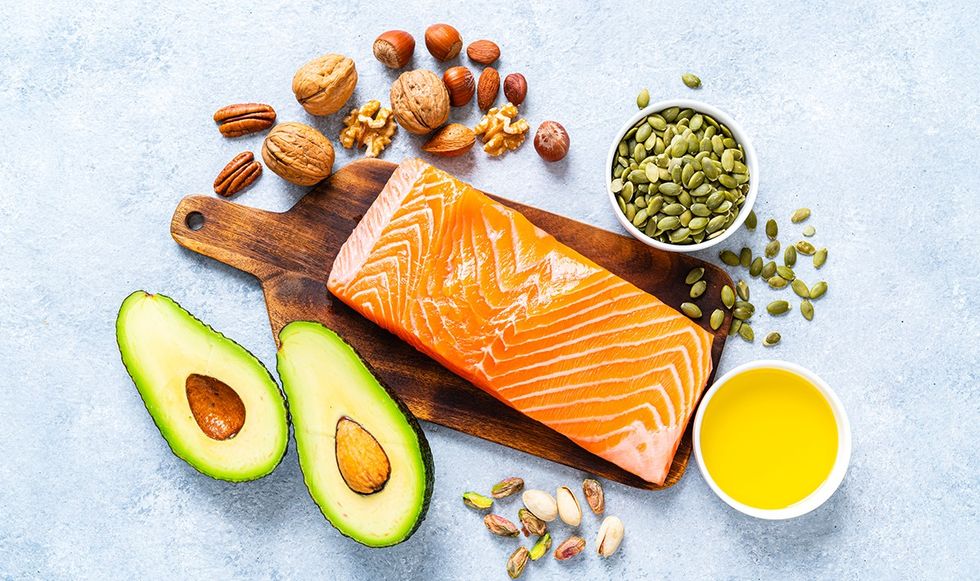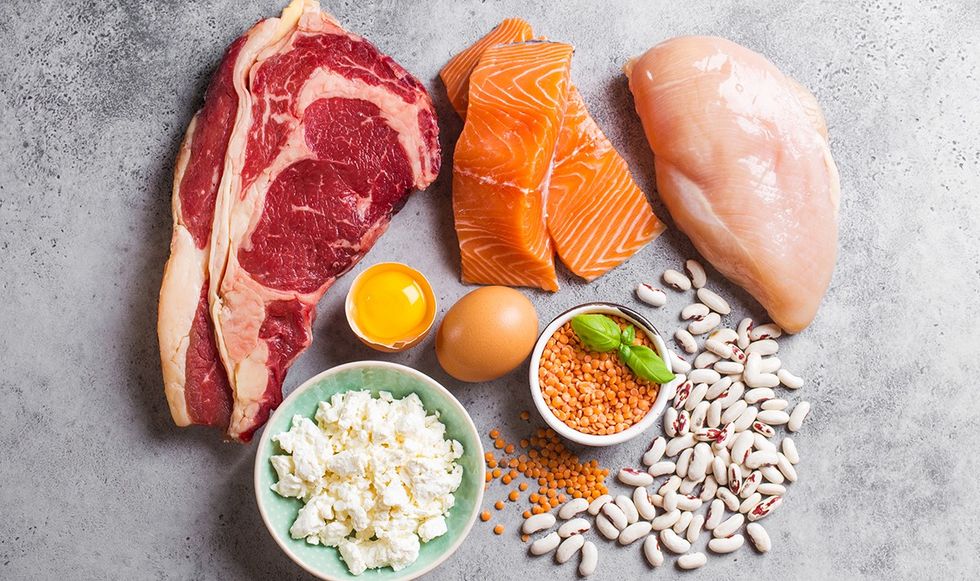How a common ingredient found in healthy foods can trigger 'inflammation' and lead to arthritis

Tryptophan can be broken down into an inflammatory chemical that primes the immune system towards arthritis
|Getty Images

Tryptophan is essential for the body but it can lead to arthritis. Here's how
Don't Miss
Most Read
Latest
The time-honoured adage "you are what you eat" holds true for arthritis as certain foods can trigger pain and other symptoms.
Starting from this premise, it's reasonable to conclude that cutting down on pro-inflammatory foods might reduce your risk of painful joint inflammation.
However, this is easier said than done as even healthy foods can be inflammatory, a new study shows.
A University of Colorado Department of Medicine faculty member says she and her colleagues have identified the means in which bacteria in the digestive system can break down tryptophan in the diet into an inflammatory chemical that primes the immune system towards arthritis.

Tryptophan can be converted into an inflammatory chemical that leads to arthritis
|Getty Images
Tryptophan is an essential amino acid found in many protein-rich foods, including meats, fish, dairy products, and certain seeds and nuts.
It has many uses in the body, including helping in the production of proteins, muscles, enzymes, and neurotransmitters – the nervous system’s chemical messengers. The body doesn’t make it; we get it from our diet.
Kuhn and her associates set out to learn how a substance that often is essential for the body is converted into a pathway to inflammatory diseases such as rheumatoid arthritis, which affects about one percent of the population. It can cause painful swelling of the hands and feet, and joint deformities if left untreated. Their results are published in the Journal of Clinical Investigation.
"It’s been known that the microbiome – the bacteria in our gut – can break down tryptophan into byproducts. Some of those byproducts are anti-inflammatory, but we’ve also associated some inflammatory causes of those products," Kuhn said. “We’re the first to highlight which products are contributing to inflammation, and how they are doing that.”
She says the new research “builds upon some observations we had in patients with spondyloarthritis – not quite rheumatoid arthritis, but a closely related condition – where we found that changes in the microbiome were associated with increased production of these products called indoles, which are what bacteria make from tryptophan”. Similar changes were observed in arthritis studies involving mice, she says.
“We put mice on antibiotics to wipe out their microbiome, and they didn’t get arthritis, and they didn’t have indole,” she said. “So we said, OK, what if they do have a microbiome and we put them on a diet with little tryptophan? The microbiome can’t break down tryptophan into indole, and the mice didn't get arthritis. So two different ways, we showed that it’s tryptophan that’s broken down by the microbiome into indole.”
LATEST DEVELOPMENTS

Tryptophan is an essential amino acid found in many protein-rich foods
|Getty Images
So how does that work? “We found that when indole is present, the mice start to develop autoreactive T-cells that are more inflammatory. They have less of those regulatory T-cells that help maintain balance in the immune system, and they start to develop antibodies that are more pathogenic. We found that the antibodies had flags for being more inflammatory when indole was present.”
The paper concludes that “blockade of indole generation may present a unique therapeutic pathway” for rheumatoid arthritis and spondyloarthritis. That’s all about finding the right path for the body’s tryptophan, Kuhn says.
“If tryptophan hits our body’s cells, it tends to go get broken down into anti-inflammatory products versus when it hits the bacterial cells and goes more inflammatory.
"The ways we think about how this could lead to therapies are: How do you keep that balance tipped so that tryptophan goes towards that anti-inflammatory pathway? How can you manipulate intestinal bacteria to tip that balance? That's where we’re interested in going in the future.”
Does Kuhn’s research suggest we should be eating differently? “I get asked that a lot,” she said. “A diet that’s rich in plant-based fibers and lean meats – this whole Mediterranean diet – seems to push the microbiome into a healthier state, so that you are getting the anti-inflammatory properties of tryptophan, whereas the typical western diet seems to go more toward the inflammatory pathway.”
As for other ways to protect against arthritis, Kuhn says that through research by her Division of Rheumatology colleagues, “we have started to understand the at-risk stage, where we can actually identify people who are likely to progress to rheumatoid arthritis within the next few years based on blood markers. There’s some data that suggests we could intervene during that period and prevent disease, but we’re not quite sure yet what are the right ways to intervene”.










